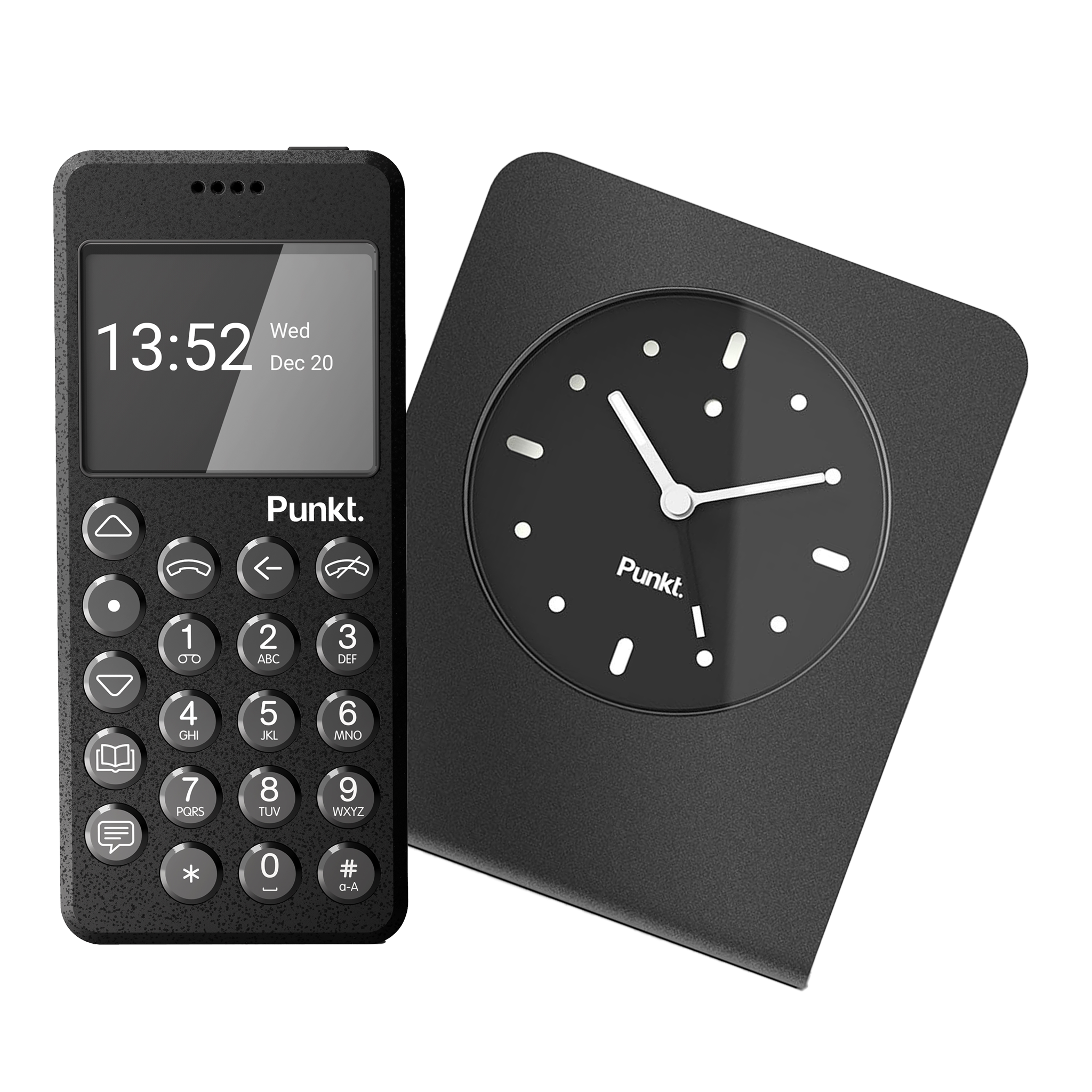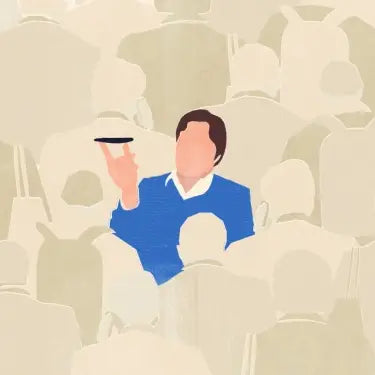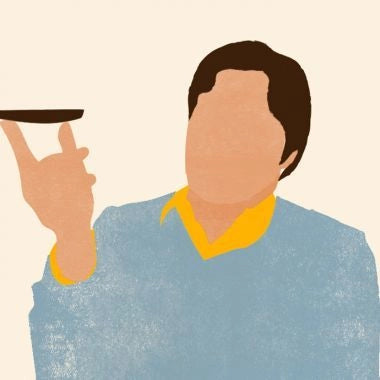48 Stunden ohne Smartphone: Ich habe überlebt






Lies diesen Bericht auf Italienisch: 48 ore senza smartphone: sono sopravvissuta
Ich habe 48 Stunden ohne mein Smartphone überlebt – für die Digital Detox Challenge mit Punkt. und dem neuen MP01-Mobiltelefon. Die Geschichte lief ungefähr so ab: „Junge Frau – positiv – von der Welt entfremdet, flüchtet sich in Bücher, um den Menschen um sich herum zu entkommen.“ Ehrlich gesagt gab es Momente, in denen ich mich ein wenig wie ein Adler fühlte, der innehält, um den Horizont abzusuchen oder Menschen zu beobachten, als wären sie Beute. Ich bin mir noch nicht sicher, ob ich darüber glücklich oder beunruhigt sein sollte.
48 Stunden ohne Smartphone? Da muss man organisiert sein
In meiner Antwort auf den Beitrag von Punkt., in dem kurz erklärt wurde, worum es bei der Challenge geht, erklärte ich, dass 48 Stunden ohne Smartphone bedeuten würden: kein Zugriff auf soziale Netzwerke über das Handy, keine Geolokalisierung oder internetfähige Geräte für Dinge, die eine Netzwerkverbindung erfordern.
Also: auf dem Nachttisch nur ein Wecker und das MP01 (das eine Weckfunktion hat), tagsüber unterwegs in Mailand eine D80-Spiegelreflexkamera für Fotos, mein iPad mit deaktivierten Benachrichtigungen – zum Musikhören, ein Field Notes-Notizbuch und ein Stift zum Notieren und ein zenartiger Geisteszustand.
Seltsames und Unerwartetes: Bereite dich auf das Schlimmste vor
Bereite dich auf eine Mischung aus Freude, Angst und Panik vor. Am ersten Tag draußen hatte ich praktisch keinen Kontakt zur Außenwelt per Nachrichten oder Anrufen.
Ich hatte Treffen mit Leuten organisiert und sie vorab informiert, dass ich nur per SMS erreichbar sein würde, nicht über Messenger, WhatsApp, Telegram etc. Das Problem ist: Niemand nutzt noch SMS. Es ist das letzte Mittel zur Kommunikation, bei all den anderen Optionen.
Ich nutzte es nicht – und mein Handyvertrag auch nicht.
Meine zwei größten Probleme waren: mich jedes Mal zu entspannen, wenn ich jemandem per Chat etwas schreiben wollte – per SMS tat ich es nicht, weil es mir „nicht wichtig genug“ vorkam. Und: Ich erinnerte mich zu spät daran, dass mein Handytarif keine SMS enthielt.
Zum ersten Mal seit zehn Jahren musste ich also mit einer Prepaid-Karte aufladen – zweifellos eine der kleinen Unannehmlichkeiten des Lebens.
Und neben diesem kleinen Vorgeschmack auf 1998 kamen noch weitere Stressfaktoren:
- Sorge, beim Musikhören den Klingelton zu überhören
- Eine 12-Tasten-Tastatur zum Schreiben verwenden zu müssen
- T9 (Teil des vorherigen Problems, aber verdient ein eigenes Kapitel des Fluchens)
- Alles – wirklich alles – was mir in den Sinn kam, mit Stift und Papier aufzuschreiben. Ich liebe Handschrift, wenn ich Zeit habe, aber nicht beim Gehen auf der Straße
- Die Karten in der U-Bahn zu nutzen, um zu wissen, an welcher Station ich aussteigen muss (zum Glück sind die Mailänder Karten gut gestaltet)
Der Moment, in dem man den wahren Sinn eines digitalen Detox erkennt
Nach etwa fünf bis sechs Stunden Entfremdung kam dieses unglaubliche Gefühl von Frieden. Dann versteht man den ganzen Sinn hinter einem digitalen Detox. Nach meiner anfänglichen Panik erreichte ich einen inneren Frieden, der es mir erlaubte: anständige Fotos zu machen – nicht getrieben von dem Gedanken, etwas „Teileswertes“ zu finden; ein ganzes Buch an einem Tag zu lesen (was mir seit mindestens 10 Jahren nicht mehr passiert war, nicht mal bei der Grippe 2001); und vor allem, viel entspannter mit sozialen Netzwerken umzugehen – was bis zum Folgetag anhielt.
Tatsächlich passte ich mein Bedürfnis, die Online-Aktivitäten meiner Kontakte zu überwachen, an meinen neuen Lebensrhythmus an – ohne Angst, etwas zu verpassen (vielleicht war es nicht so wichtig, wenn mir niemand davon erzählt hat, oder?). Ich nutzte den Computer, um die meisten Dinge zu erledigen, die keine SMS oder Anrufe waren.
Und ich muss zugeben: Ich habe auch viel besser geschlafen.
Ein Detox bedeutet nicht nur eine Pause von Geräten, Technologie und Internet, sondern auch ein Loslassen von diesem nutzlosen Informationshunger, der für das Leben im aktuellen Moment nicht wichtig ist. Vielleicht ist das vorhersehbar, aber ich hatte nur eine vage Vorstellung davon – bis ich es selbst während dieser zwei Tage erlebt habe.
Fazit?
Ein digitaler Detox ist eine großartige Möglichkeit, Ablenkungen zu beseitigen und sich besser auf das reale Leben, sich selbst und andere Menschen zu konzentrieren. Und zu erkennen, worauf man gut verzichten kann. Zum Beispiel das ständige Checken des Handys, obwohl sich niemand gemeldet hat.
Wenn jemand etwas auf Facebook postet, das für alle bestimmt ist – aber nicht speziell für dich –, kannst du entscheiden, ob du Zeit investieren willst, es zu lesen. Wenn du dich dagegen entscheidest, wird dein Leben mehr oder weniger genauso weitergehen.
Am wichtigsten ist zweifellos, herauszufinden, wie man einen digitalen Detox gesund und bequem gestalten kann. Die QWERTY-Tastatur zum Beispiel ist magisch. Ein Muss. Was ich mir wirklich wünsche: dass Handyhersteller ein Detox-Modus integrieren – neben dem Flugmodus: Ein Klick, um das Internet abzuschalten.
Aber ich glaube nicht, dass das so bald passieren wird.
Bianca Ferrari
Twitter: @bia_hvid
Instagram: @bia_hvid
Blog: Spell the Web.










